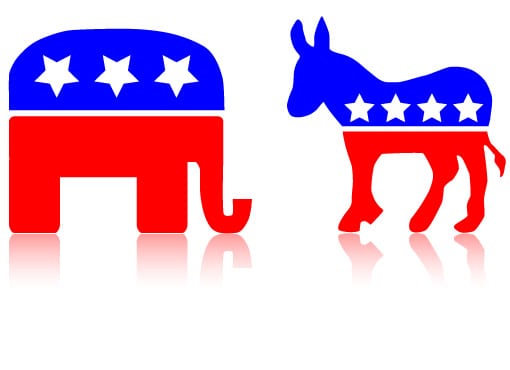Obama, Romney Tackle Tax Code, Small Businesses, Student Loans
President Barack Obama and Republican nominee Mitt Romney squared off Wednesday night in the first of three televised presidential debates. Although many voters have already made up their minds, political experts agree that the ultimate decision may fall to the small percentage of “undecideds” and “persuadables.” These voters could tip the balance in one direction or the other come November 6.
It was this group of unsure voters that each campaign attempted to reach Wednesday evening. Both campaigns understood that these voters are among the most deeply negative about the current state of the economy, as well as the most suspicious of political rhetoric. Each candidate attempted to convince this voting bloc that he is the best person to aid the middle class and jump-start the economy. In fact, the first half of the debate’s 90 minutes was devoted to the economy.
Here is a sampling of some of the salient portions of the debate dedicated to economic issues:
Tax Cuts and the Deficit
Obama wants to retire some of the Bush-era tax cuts for wealthier Americans, while Romney repeatedly stated his intention to lower tax brackets, cut deductions, all while expanding the tax base.
Obama challenged Romney’s assertions that his across-the-board rate cut could be accomplished without increasing the government’s deficit or raising taxes on middle-income people. Romney maintained that his tax changes would be revenue-neutral.
Small Business
The candidates went back and forth all night on the topic of small businesses. Romney stated: “It’s small business that creates the jobs in America, and over the last four years, small business people have decided that America may not be the place to open a new business because new business startups are down to a 30-year low.”
Later, Obama said: “Governor Romney and I do share a deep interest in encouraging small-business growth. … What I want to do is continue the … tax cuts that we put into place for small businesses and families.”
Education and Student Loans
Both candidates flaunted their commitment to education. Romney highlighted the fact that Massachusetts schools rank No. 1 in the country, while Obama touted his administration’s efforts to make college more affordable by increasing federal student aid, keeping student loan interest rates low and getting private banks out of the federally guaranteed student loan business.
Romney iterated that he was not going to cut education funding and had no plans to reduce the size or number of Pell grants offered to college students who demonstrate financial need.
Sources:
- Seitz-Wald, A. (2012, October 3). Debate Fact Check. Salon. Retrieved from http://www.salon.com/2012/10/04/debate_fact_check/
- Presidential Debate Fact-Check and Updates. (2012, October 3). New York Times. Retrieved from http://elections.nytimes.com/2012/debates/presidential/2012-10-03#sha=b84167e95
- Goldberg, M. (2012, October 3). Romney Won and the Truth Lost. The Daily Beast. Retrieved from http://www.thedailybeast.com/articles/2012/10/03/obama-allowed-mitt-romney-to-get-away-with-lies-in-debate-showdown.html


















